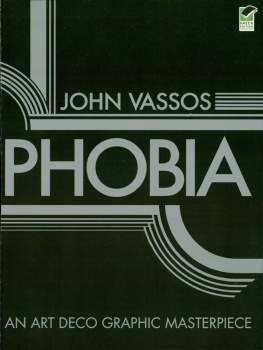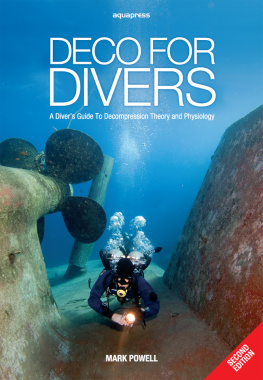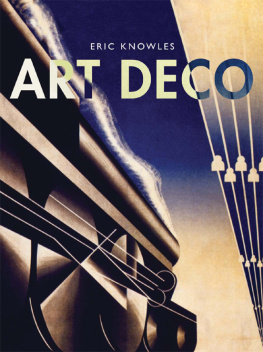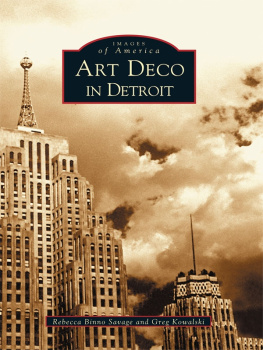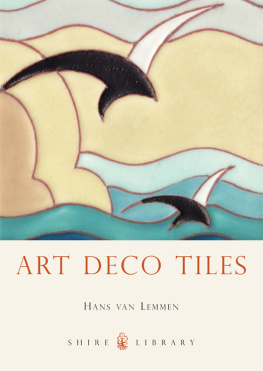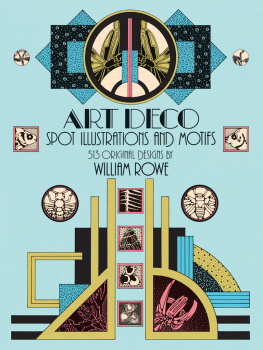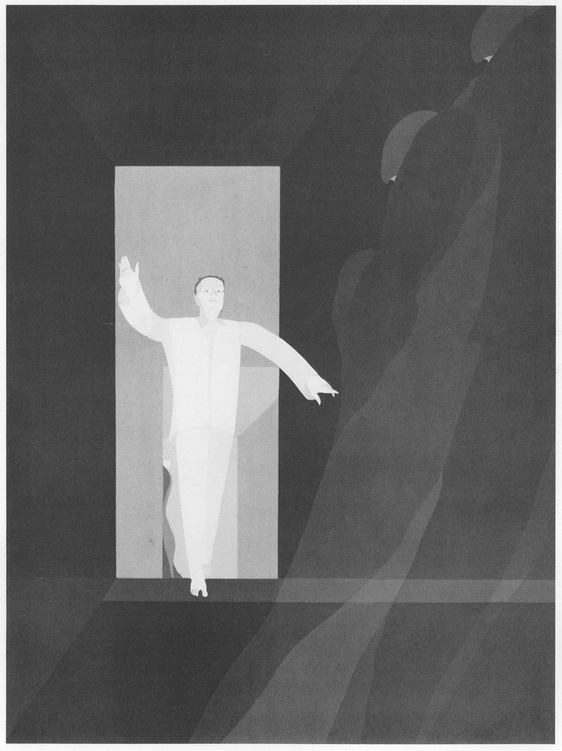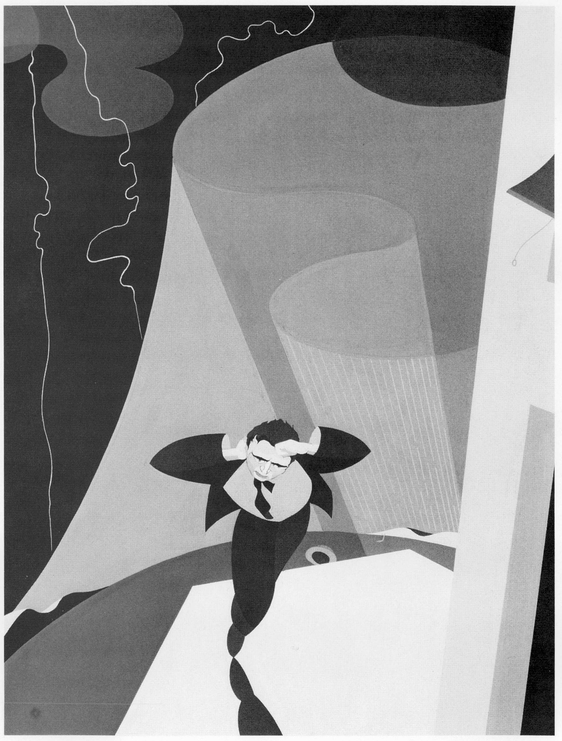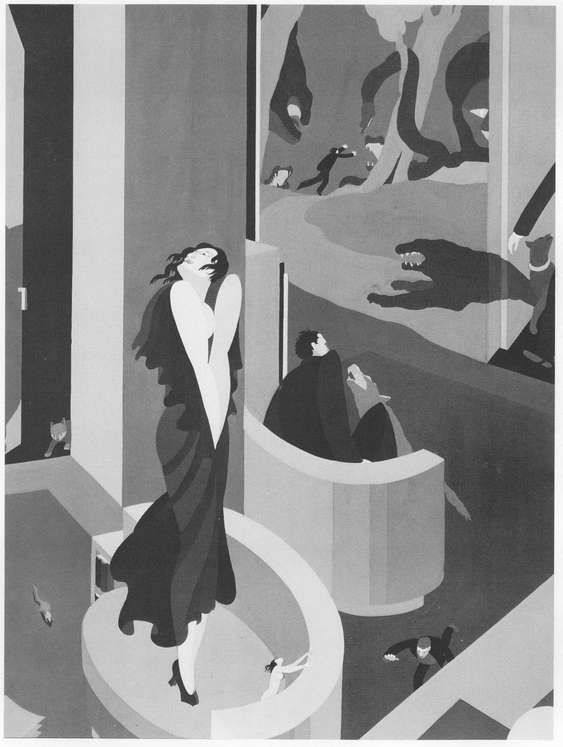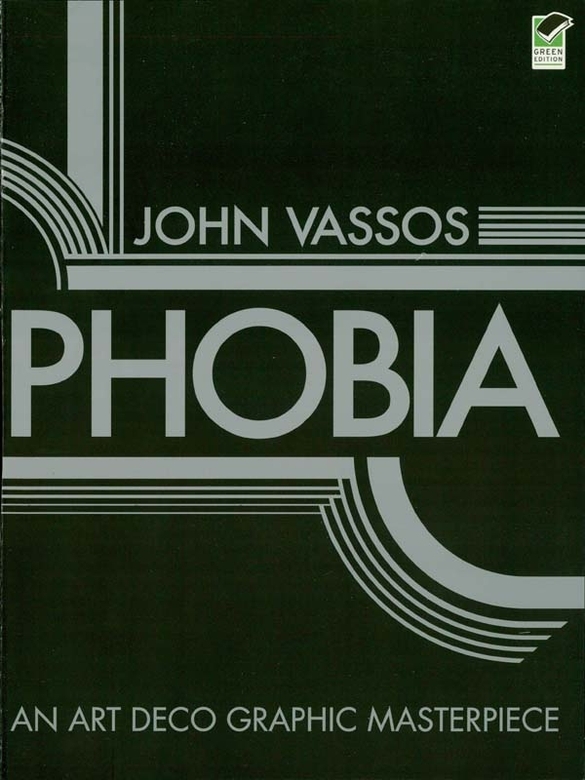
I. NICHTOPHOBIA
The Fear of the Dark
There are a few people who fear the light of dayfor whom the sun is the enemy and who will not emerge from their houses until the man-made lights are lit. But the almost universal fear of the dark is intensified in hundreds of individuals into a real phobia. For them a dark room is actually filled with spectres ready to mutilate, to rape, and to slay. The victim of this phobia probably suffers from an inner conviction of guilt, a conviction that he has sinned in thought and word and deed; it is punishment that he fears, and yet desires because it will make him clean again. In this common and comparatively mild form of phobia is clearly demonstrated the conflict, (between the victims terror of retribution for his self-confessed transgressions and his longing for the expiation that will liberate him), which is characteristic of so many of the more complicated forms.
We have long had our childhood and adolescent fear of the dark explained to us by parents and teachers as a result of dimly remembered bedtime stories about tigers who roam in deep jungles; or else as a racial inheritance of our ancestor the cavemans dread of the very real perils he constantly endured. But this theory, while it undoubtedly explains a great deal, can be made to explain too much. Some people shun the dark for actual and personal reasons. In their twisted minds they are guilty of sin, and the formless blackness, that to the normal mind is only absence of light, is transformed into a perilous other-world when conscience and nature are at odds.
I. NICHTOPHOBIA
The Fear of the Dark
II. ASTROPHOBIA
The Fear of Storms
Lightning, thunder, cloud-bursts, and hurricanes tore down the rude shelter of primitive man and bowed his progeny in awe. This, according to the genetic psychologists, is the reason so many of us, even today, still retain a wild terror of the more violent manifestations of nature. But then, why are we not all victims of astrophobia? Stranger still, why do some of us feel, in place of fear, an actual fondness for these visible signs of heavenly powers? Here again, it seems to me, the explanation offered is too facile, too plausible, to be wholly true. Lightning is no longer the mysterious, incomprehensible agency it once was; nevertheless, the astrophobiac finds no sedative for his terror in the commonplaceness of electrical appliances. Let the lightnings begin to play, and however securely he may be housed, he seeks refuge in the deepest cellar, in the darkest closet, the remotest hiding-place.
There would seem to be something wholly pagan in the composition of every phobia. The man whose soul guards no secret chamber filled with thoughts and desires that do violence to the commands of his god, has no such abject terror of the storm. We are not dealing here with any simple fearthe disinclination to be struck by lightning which is the normal feeling of normal persons. It is very possible that in the warped mind of the astrophobiac, as he hides in closets and under beds, the lightnings of the storm are the bolts of an avenging God, striking surely for the one who has transgressed His decrees.
II. ASTROPHOBIA
The Fear of Storms
III. ZOOPHOBIA
The Fear of Animals
A natural aversion in healthy people for mice or dogs need be no indication of zoophobia. But the wild and ecstatic terror that grips some women in the presence of a mouse or before the amiable advances of the house-dog tells a story of strange and perverse fancy. These horrors of animals can be so astounding that they involve an element almost magical. I have seen a woman so morbidly afraid of cats that she could recognize a feline presence the moment she crossed a strange threshold, and be unable to complete her call.
Sometimes this phobia undergoes a transformation, and the animal feared is ruthlessly hunted down. A well-known psycho-pathologist of my acquaintance has a tremendous aversion to cats (against which not even his own precise understanding of his malady is proof), and destroys them without compunction. He has been known to drive his car onto the sidewalk in wild pursuit of some inoffensive tabby. Creatures of the insect world often inspire this strange fear in humans, and the spider thus becomes a thing of loathing. It is possible that its habits of trapping and blood-sucking are projected as somewhat violent symbols of suppressed desires.
The theory is that a victim of zoophobia fears a symbol of an unconscious desire. What one is inhibited from loving may be transformed by the unconscious into an object to be hated. So, the old maid violently afraid of mice shudders at the thought of contact with a manyet desires it. The fear of mice is merely a symbol for a quite other aversion. Conversely, at times it is the human that is feared, and a fantastic attachment for a lesser creature springs up, giving outlet to the flames of desire. In Balzacs A Passion in the Desert, a female panther is the object of such an unnatural love on the part of a man.
III. ZOOPHOBIA
The Fear of Animals
IV. POTAMOPHOBIA
The Fear of Running Water
Curiously enough, running water, which is the fear-symbol in one of the strangest of all phobias, is also one of the powerful sedatory influences in the treatment of the violently insane. The patients in asylums situated near streams and rivers are frequently to be found sitting on the banks staring intently at the water as it flows by. There is no doubt that there exists in the human soul a profound relationship with this natural manifestation that exerts its sway over the subconscious mind. Even among the normal and sane, the attraction of running water is a commonly observed fact. It is interesting to note, also, the use of the device in insane asylums known as the continuous bath, for the subduing of violent patients. They are placed in a kind of canvas hammock and suspended over a tub. Water at body temperature is allowed to play continually over the body until the patient has been lulled to quiescence by its healing effect.
The psychopathologists believe that in all of us there exists a strong desire to let ourselves go, in utter weariness, and be carried on the bosom of the stream to the eternal nothingness that is death. In the potamophobiac, this desire has been exaggerated to an abnormal degree, and the subconscious, reacting against its own longing for obliteration, has set up the running stream, the ever-moving sea, and even such commonplace articles as the wash-stand faucet and the toilet-bowl, as symbols of fear. In this complex of unbalanced imaginings may also exist the castration fearthe terror of the unknown, predatory creatures that lurk in ocean and river.
The last stanza of Swinburnes Garden of Prosperine is an apt expression of a less frenzied mood of potamophobia:
From too much love of living,
From hope and fear set free,

